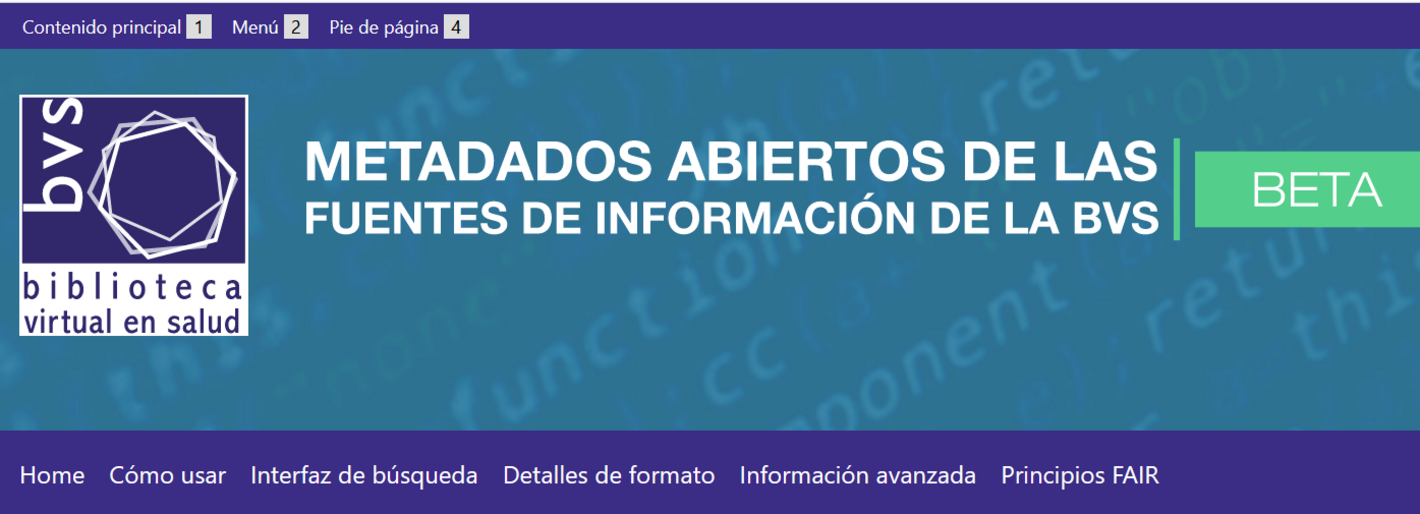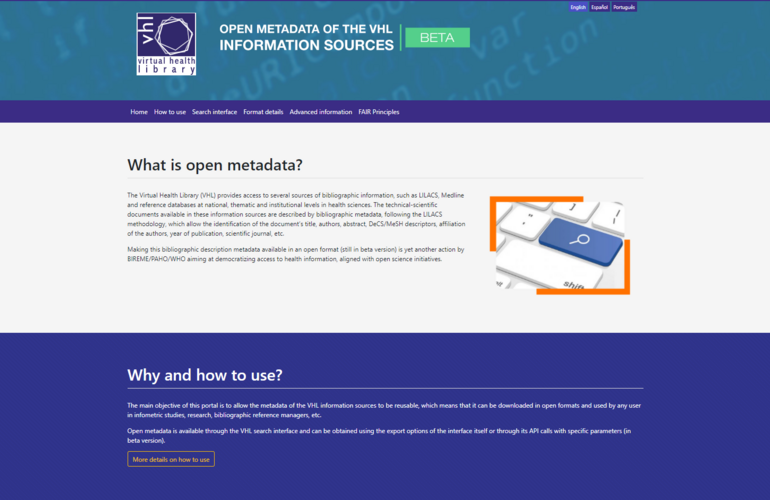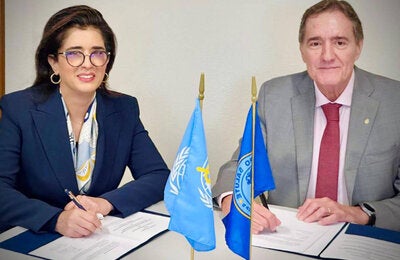
With the objective of strengthening the democratization of access to health information and in line with open science initiatives, the Latin American and Caribbean Center on Health Sciences Information of the Pan American Health Organization/World Health Organization (BIREME/ PAHO/WHO) creates the Open Metadata Portal of the Information Sources of the Virtual Health Library (VHL). This initiative is in line with the institutional strategy on Open Science and meets the recommendations of the Center’s Governance Committees. BIREME’s scientific information products and services, based on the Latin American and Caribbean Literature on Health Sciences – LILCAS[1] database, had its inclusion criteria for journals updated with the inclusion of articles in compliance with open science practices. In addition, the Scholarly Communication in Health Sciences VHL has just been reformulated to include scientific literature on open science, norms and guidelines for its adoption and indication of blogs that bring discussions on the topic, among other innovative topics.
In its beta version, in Portuguese, English and Spanish, the VHL Information Sources Open Metadata Portal provides information so that the metadata can be reusable, that is, they can be downloaded in open formats and used by any user in study infometrics, research, and bibliographic reference managers, for example.
The simplest way to get VHL metadata is by using the search interface. When performing a search combining the available fields and filters, the result can be exported by selecting one of the available formats: Extensible Markup Language (XML), JavaScript Object Notation (JSON), Research Information Systems format (RIS), Comma Separated Values (CSV) and Really Simple Syndication (RSS). The portal also provides a self-assessment for adherence to the FAIR- Findable, Accessible, Interoperable and Reusable- principles.
Furthermore, the VHL offers access to several bibliographic information sources, such as LILACS, MEDLINE, and national, thematic, and institutional reference databases in health sciences. The technical-scientific documents available in these information sources are described by bibliographic metadata, following the LILACS Methodology, which allow for identifying the title of the document, authors, abstract, DeCS/MeSH descriptors, author affiliation, year of publication, scientific journal, etc.
About metadata
Metadata is data about data, that is, it is information that makes it possible to organize, classify, relate, and infer new data about the data set. The quality of the metadata provided facilitates access to the data, as well as better understanding and use by users.
About open science
Open science is a comprehensive concept that encompasses several movements whose objective is to make the entire research cycle more transparent and seek to remove barriers to sharing any kind of results, resources, methods, or tools used in the research process. Thus, open access to publications, open research data, open-source software, open collaboration, open peer review, open notebooks, open educational resources, open monographs, citizen science or research crowdfunding are within the boundaries of open science.
At UNESCO’s 41st General Conference, held in November 2021, its 193 Member States approved the adoption of the Recommendation on Open Science[2]. The Recommendation defines shared values and principles for Open Science and identifies concrete measures on Open Access and Open Data, with proposals to bring citizens closer to science and commitments to facilitate the production and dissemination of scientific knowledge around the world.
[1] Latin American and Caribbean Literature in Health Sciences. Criteria for Selection and Permanence of Journals LILACS Brazil. 2021 Version. Available at: https://lilacs.bvsalud.org/en/lilacs-journals/criteria-for-selection-and-permanence-of-journals-lilacs-brazil-2021/
[2] United Nations Education, Scientific and Cultural Organization. UNESCO Recommendation on Open Science. November 2021. Available at: https://unesdoc.unesco.org/ark:/48223/pf0000379949.locale=en




